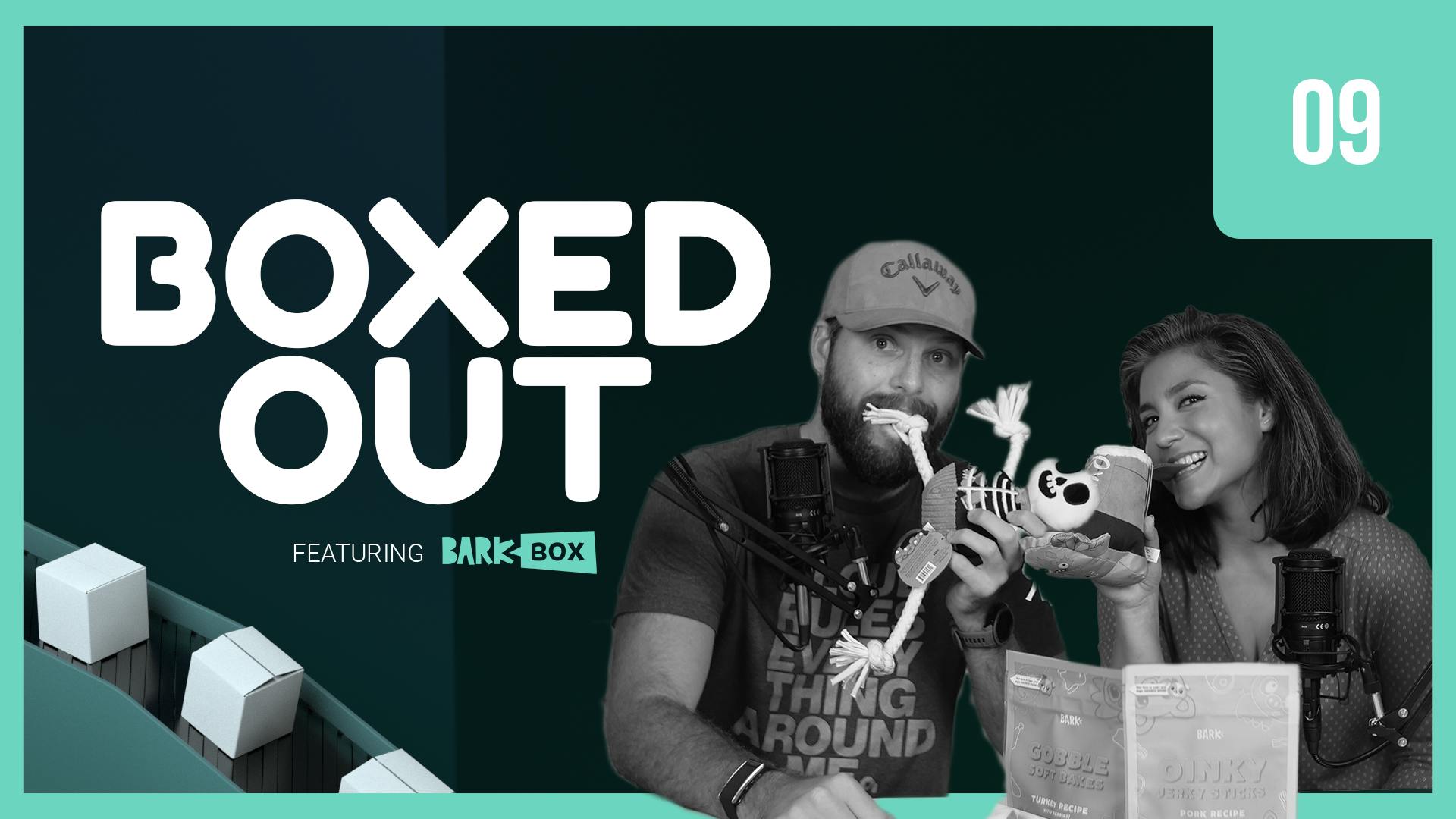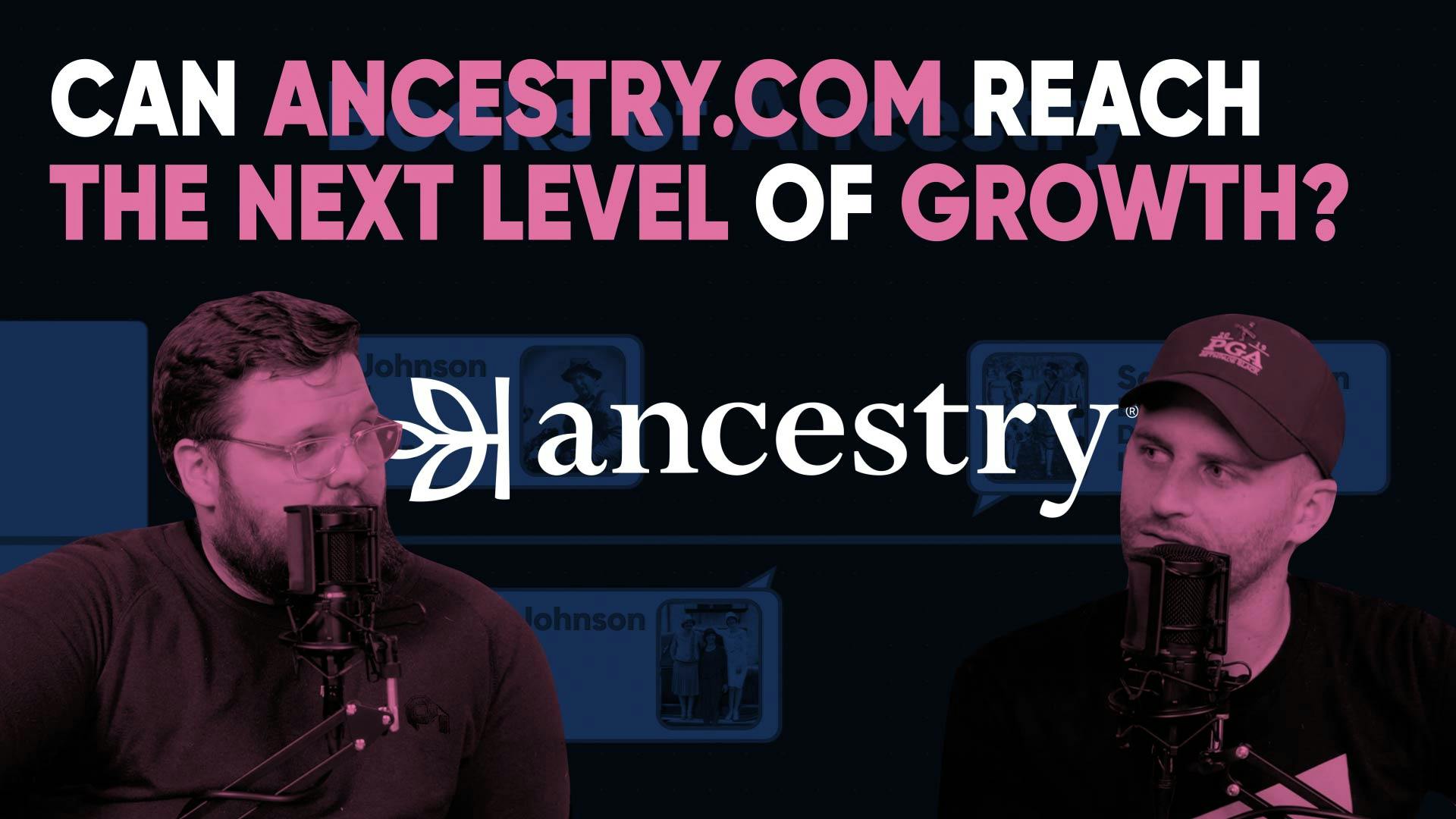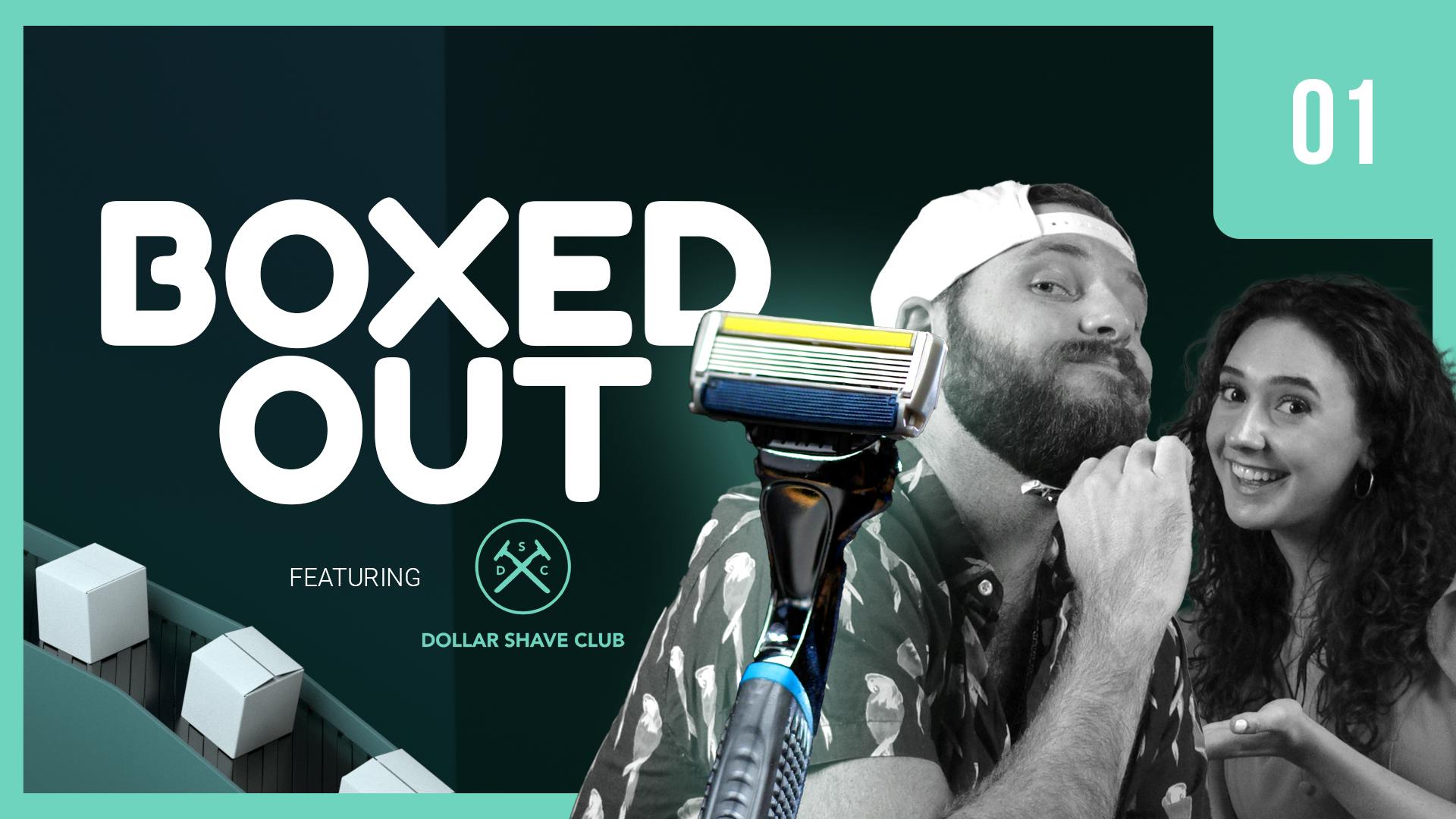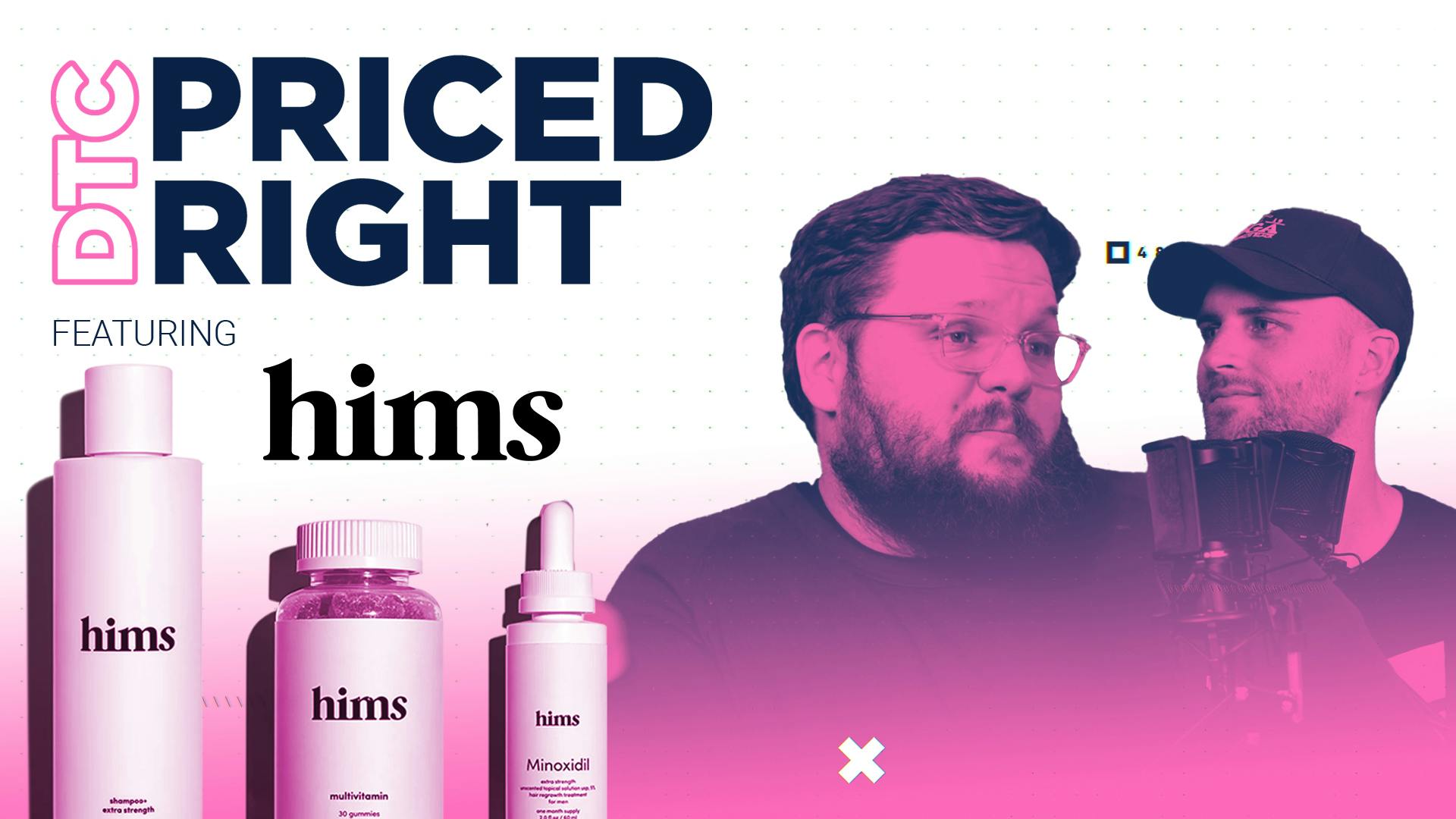
B-Side: Hunting whales at ProfitWell (or how we do business development)
This episode might reference ProfitWell and ProfitWell Recur, which following the acquisition by Paddle is now Paddle Studios. Some information may be out of date.
Please message us at studios@paddle.com if you have any questions or comments!
Hunting whales at ProfitWell
This week I want to try something a bit different. I'm going to talk through a problem I'm currently working on—essentially a ProfitWell business case—but I haven't completely bridged the framework for or solution quite yet. I'd love your feedback and ultimately any referrals you can send my way for help (or the positions below). As progress or a solution comes into focus, I'll then share the findings with the community.
Sound good? Awesome. Let's jump in.
The problem we're going to talk about: building out our business development function and team. Are we doing this right? Do you know someone who should join this team?
Definitions can get funky here, so to be more specific, this is what we, internally, call our "Lead to Demo" team. They're responsible for taking inbound or outbound leads and making them into opportunities (ie. getting them on the phone with our Account Executives/Sales team). As a side note, we call them the "ProfitWell Whalers", because they hunt for whales in terms of leads. Below is their team patch, but I'll save explaining the symbolism in the below for another day.
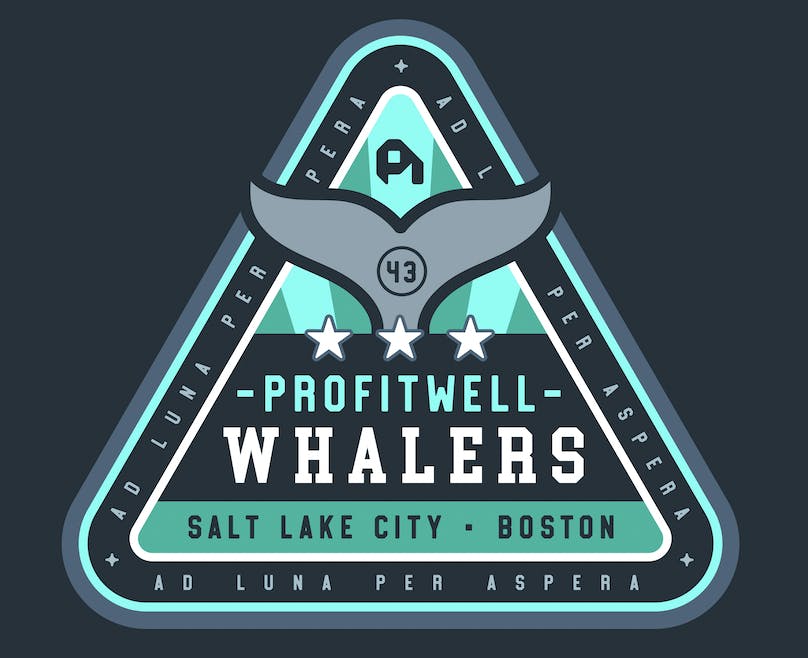
How are we thinking of business development at ProfitWell?
To me, rather than just copy and pasting what Aaron Ross did with Predictable Revenue or Mark Roberge did with HubSpot, I like to think about any function or problem from first principles. Ultimately we want to get someone on a call, which means we have to get them to respond, which means we have to get them to notice and trust we're not going to waste their time.
All business development functions have this aim, but at ProfitWell we have a couple of constraints you may or may not have, as well:
- Low logo TAM
undefined - All prices going up with channel density
undefined - Exceptionally noisy market
undefined
Apart from the logo TAM point above, you're probably facing the reality that it's harder to get attention today, let alone a conversation. This is why we as an industry are accepting higher and higher acquisition costs and ironically focusing on pricing and retention more (which is why we build the products we build at ProfitWell to help subscription companies with those things).
Further, we're seeing more and more content, as well as brand plays, to help companies stand out. We're also reinventing things like mid-market/enterprise software sales of ten years ago and calling it ABM, because it can be more efficient and scaled for less expensive products.
So how is ProfitWell intending to battle these constraints?
Let's align to our constraints and circumstance. We spoke a lot about our top of the funnel strategy a few weeks back when going through ProfitWell's media strategy. To date we have seven video and audio series that are building audiences amongst our target customer verticals. It's getting us the right brand play with plenty of inbound, but we need the right business development team to capitalize on this position.
Here's our current core tenets we're thinking through:
- We need high lifetime value (LTV)
undefined - High trust is crucial
undefined - High leverage is crucial
undefined
ProfitWell stacks up well to these tenets. For high LTV, we're a multi-product company that can sell into multiple constituencies within a subscription company. Our free metrics product can be adopted by mostly any organization and then give us an "in" to show the company they're losing money, as well as in need of one of our products. Our paid products serve teams across the organization - product/customer success (ProfitWell Retain), product/marketing (Price Intelligently), or finance (Recognized). This allows us to sell into one and expand into another or get rejected by one and sell into another (which then lets us to expand back into the rejected part of the org).
Our pricing is a point of pride where we target prices points between $1k and $20k per month. We have a good number of people who spend less, but they're mainly served in a reactive or touchless manner from the free product. Our net retention is over 100%.
For trust and leverage, we have the foundation in place. Our tech stack is finally in place and unified (Drift, Outreach, ZoomInfo, SFDC, HubSpot, Front, etc). We've segmented our market down into three core verticals across the two products, and ensured our messaging and outreach has the right QA to ensure we're not sending crappy emails that erode trust. We also get a ton of leverage out of video, direct mail, ad warming, customized content at the lead and company level, etc. I'm being a bit vague here because some of our tactics work extremely well and we want to protect the work we've done on them. Happy to chat through them via email or voice thought.
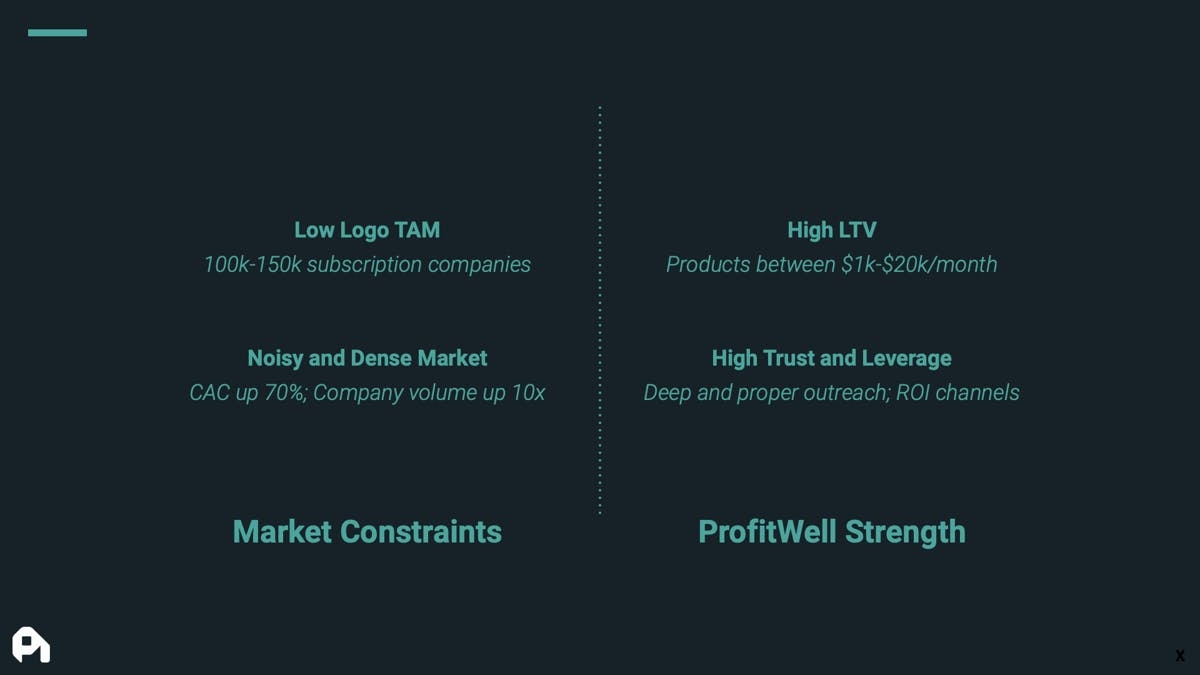
This all seems great right? So where's the problem?
In my mind, we're running up against two core issues. First up - we've got the foundation, but scaling the foundation is going to require 100% dedication from someone who's been there before. Given enough time I'm sure I could figure it out after making many mistakes, but that wouldn't be great for the team or our goals. We've gotten this part of the organization from "0 to 1", but we need someone to move it from steps 2 through 10.
The other big issue stems from the first in that there's likely a minefield of unknown unknowns that will lurk beneath the surface and spring up at the worst time. Finding someone to lead who's had those experiences will be ideal, particularly because the foundation and focus is so aligned and strong. Essentially, we need to find someone who wants a challenge, but not a challenge where they're dealing with the bologna of trying to convince someone of importance or of needed resources.
We also need BDRs - who we call "specialists", because no one receives an email from a "BDR" and wants to respond. These folks need to have grit, resilience, and the curiosity to get better. With those traits they'll compound our learnings and end up being perfect candidates to move up or over throughout the organization (ie. promotions to AEs, marketing, ops, etc.)
Here's how we're thinking of initial org structure and then how it expands (although I'd love the person who comes in and leads this to make these decisions). We need the folks in the dotted lines.
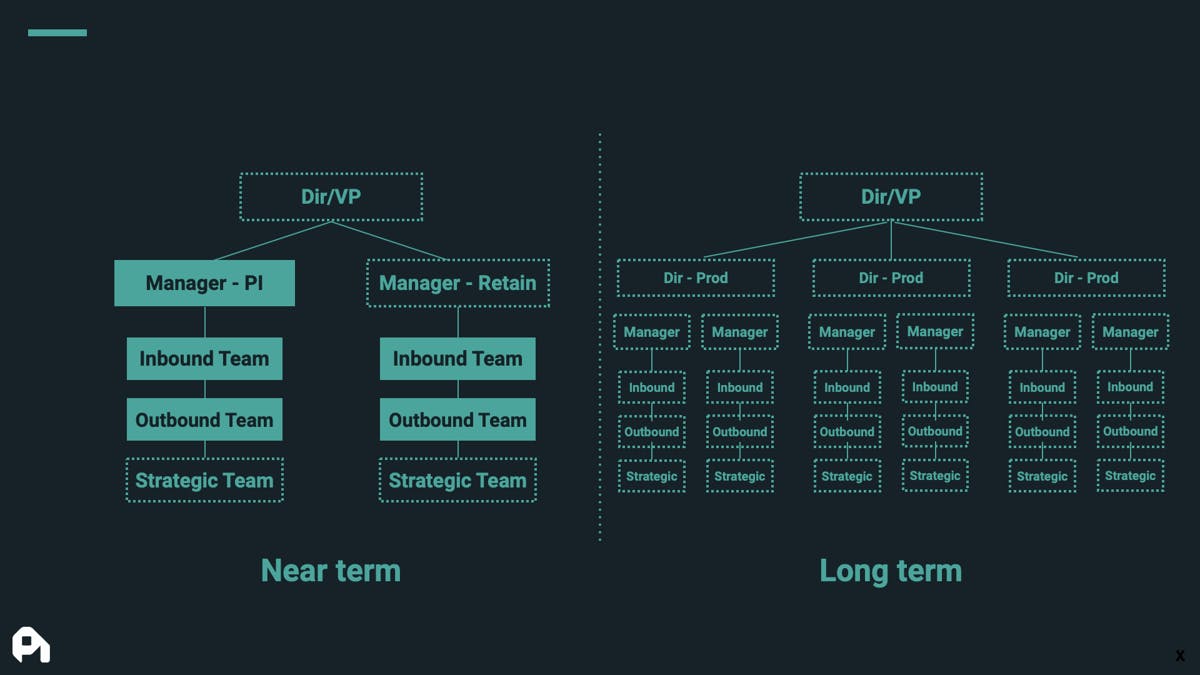
Director or VP or both?
On the Director or VP of Business Development front, we're looking for someone to both own the quota of the team, but to also scale this part of the organization, as it'll be needed given our growth rate and multi-product nature. There's a lot of ways they can built out the org, but we'll want to do this in a manner that protects our leverage and builds trust. Intuitively this person will also be on our leadership team.
In terms of traits, we think this person needs to:
- Have scaled a B2B business development team beyond the initial foundation.
- Be able to critically think from first principles and discuss those ideas in a feedback/direct manner
- Embody grit. Our culture is very "roll up your sleeves"
- Care deeply about building teams
We also need to stack the team with more Retention and Pricing Specialists (our BDR/SDR roles). Given our products and customer we typically find that we need folks who aren't right out of school (lots of exceptions - BYU, Weber State, Northeastern have phenomenal training programs). These folks also need to embody a learners and workers mindset. We spend a ton of time coaching and developing young talent, but don't want that time spent on deaf ears.
Where are we wrong? Know anyone who can help?
I think that sums the scope and problem up. If there's more information you need to give feedback, then let me know. I think some of the questions I'd love help on are:
- Are we thinking about this in the right manner?
- How should we think about these roles?
- Do you know anyone in Salt Lake City or Boston who can help or even join/lead the team?
- What were the biggest pitfalls you saw in building your BD team?
Any and all feedback super appreciated. I'll compile things after some cycles of learning and publish for the whole group. Appreciate you all and let me know if I can be helpful on anything, as well.
Do us a favor?
Part of the way we measure success is by seeing if our content is shareable. If you got value from this episode and write up, we'd appreciate a share on Twitter or LinkedIn.
00;00;00;03 - 00;00;06;01
Patrick Campbell
I'm going to be vulnerable today. We're struggling with something. And I want to ask for help.
00;00;07;10 - 00;00;24;21
Ben Hillman
From proper well recur. It's protect the hustle, where we explore the truth behind the strategy and tactics of B2B SAS growth to make you an outstanding operator. On today's episode, we're diving deep on business development. Patrick, take it away.
00;00;27;08 - 00;00;50;17
Patrick Campbell
Welcome back, everybody, to another episode of Protect the Hustle, the B-sides. The voice you're hearing here is Patrick Campbell's, co-founder of Profit. Well, we're going to have a good episode today that we're going to be cranking through, talking about some problems that profitable is facing. And I kind of want your help with if I could be so, so grateful to get a couple of housekeeping ideas before we jump in.
00;00;50;17 - 00;01;15;06
Patrick Campbell
One. I am heading to New Orleans, Houston, Austin, Denver and can stop anywhere in between. Basically the better half an hour heading back from Florida, back to Utah. And so if you are in any of those areas and want to hang out safely, just let me know. Also, our recurring studios team released our book that we wrote on lowering cancellations and churn through attacking failed payments in audiobook form.
00;01;15;17 - 00;01;33;04
Patrick Campbell
So if you want to hear me talk about credit cards for an hour, I assure you it is exciting, it is entertaining, but ultimately it's got a bunch of actionable takeaways to lower your cancellations. You can just hit up me at PC at profitable dot com or if you got here via email, you can basically just reply to the email that you got.
00;01;33;11 - 00;01;51;19
Patrick Campbell
If you're only hearing this in the podcast form, you can go to protect the hustle dot com and make sure you get on the list in order to get all of this fun goodness emailed to you. We do the entire write up of the topic and everything in the email, so if you can't listen, you can essentially just read everything in the email and get all of the fun details.
00;01;51;19 - 00;02;08;10
Patrick Campbell
But of course if you can listen, some of you prefer to have me right between the years here and talking about all this fun stuff. A couple other things here. This is one of those things where we have a lot of topics in the queue. I've been getting a lot of feedback from everybody. Just make sure you apply to the email again and protect us.
00;02;08;11 - 00;02;26;20
Patrick Campbell
Dot com. You can sign up and give me some topics to cover. Basically, the feedback has been great in terms of the depth of what we're going into. Some of you don't like how long the posts are, even though you do appreciate the density is not rambly. It is, you know, nice and helpful. Yeah. Let me know. And then the following is a little bit vulnerable for me.
00;02;26;20 - 00;02;45;07
Patrick Campbell
So it's a little bit of learning in public, a little bit of building in public, which is not something that I've done a lot of. So you had to with me, I'm looking for some help and I think this week to kind of jump in, we're going to be doing something a little bit different. I'm going to talk through a problem that I'm currently working on, essentially kind of like a profitable business case.
00;02;45;07 - 00;03;05;08
Patrick Campbell
And I haven't completely bridged this problem to a framework or a solution quite yet. And so I'm kind of bringing this community in and I love your feedback and ultimately kind of any referrals for folks that you think can help. We also are hiring for a couple of positions that are relevant to this problem. So obviously if you know someone to help, that would be awesome.
00;03;05;20 - 00;03;24;07
Patrick Campbell
And then the experiment is, is that as I get help from the community, what I want to do is basically kind of put all of that into write up of the findings as we get closer to kind of solving the problem. So think about it like we're kind of crowdsourcing a particular problem. We're going to start with a problem we're facing just because, you know, we're the ones who put this out.
00;03;24;07 - 00;03;38;26
Patrick Campbell
But eventually this could be crowdsourcing other problems that people have or these types of things. They would just kind of want to see if this evolves. It might be a complete failure. But even so, I think we're going to learn a lot, not only myself, but also as a community. So that's some good. Everybody, we fired up. Let's get fired up.
00;03;38;26 - 00;03;59;27
Patrick Campbell
Let's jump in. So the problem we're going to talk about is specifically at profile, well, building out our business development team and kind of function. And the questions are like, are we doing this right? Do you know someone who should join our team? Do you know someone who can help us? You know, basically, you know, trying to get that feedback on how we're doing our kind of middle of the funnel team.
00;03;59;27 - 00;04;22;03
Patrick Campbell
And just because there's a lot of definitions and they can get funky. Basically our business development team is what we call internally is our lead to demo team. You know, they're responsible for taking inbound and outbound leads, making them into opportunities, i.e. getting them on the phone with our account executives or our sales team. This team is like the BTR team or the SDR team, depending on how you're structured and your own company.
00;04;22;14 - 00;04;36;00
Patrick Campbell
I mean, basically we've been working on building this out as kind of the next team that needs to kind of rise up and get formalized. And so what I'm going to do is, I mean, talk a little bit about how we're thinking about it at Profile. Well, what we've kind of been doing and then some of the problems that we're facing.
00;04;36;00 - 00;04;52;28
Patrick Campbell
And so first up, you know, how do we think about business development of profit? Well, so to us, rather than, you know, just kind of copying and pasting from Aaron Ross with predictable revenue, which is a very popular sales book or even with Mark Romero did, he was on the podcast a couple of weeks ago in what he did with HubSpot.
00;04;53;10 - 00;05;10;12
Patrick Campbell
We kind of like to think about any function or problem from first principles. That's what we do a lot of at Praful. It's one of our core values and ultimately we when we think about a business development team, what we want to do is we want to get someone on a call, which means we have to get them to respond to some sort of message.
00;05;10;12 - 00;05;24;24
Patrick Campbell
And that means that we have to get them to notice and trust us that we're not going to waste their time and that we actually can help them. And so all business development, you know, functions have this goal, but at profit, Well, we have a couple of different constraints that you may or may not have at your business.
00;05;24;25 - 00;05;39;17
Patrick Campbell
You know, you're going to have at least one or two of these. And then probably we're unique with at least one or two of them as well. So the first kind of constraint or the first kind of, you know, problem that we kind of have within profit, well, when it comes to business development is we have a low logo, total addressable market.
00;05;39;24 - 00;05;57;04
Patrick Campbell
So what I mean by this is you mentioned you've heard me mention this in the past, we have between 100 and 150,000 subscription companies in the world, and that logo number is not rising dramatically. It's not like e-commerce where there's just tons and tons and tons of stores coming on the market. Instead, you know, we have 100, 250,000.
00;05;57;04 - 00;06;26;25
Patrick Campbell
That number is growing, but it's not growing really rapidly. But our revenue total addressable market is expanding exponentially. So the amount of subscription revenue out there is growing significantly. Now, the second kind of problem or kind of constraint that we face, all prices are going up when it comes to channels and marketing and sales. Just because of density, customer acquisition costs is up about 70%, meaning a customer that costs you $100, let's say six years ago, they're now costing you about $170 today to acquire.
00;06;27;06 - 00;06;45;16
Patrick Campbell
And we have some data that I can share on this if you're interested, and some channels are obviously better. So content's a bit better, media is a bit better, freemium is a bit better, but all these channels are still going up in terms of how much they cost to basically acquire a customer through. And then the final kind of constraint is we're just in a very exceptionally noisy market.
00;06;45;16 - 00;07;09;17
Patrick Campbell
Indirect and direct competitors have just increased substantially. If you want some numbers to. This used to have probably about 2 to 3 competitors when you're building a business about six, seven years ago today, that number is basically 10 to 15 next, because anyone in their mother can basically start a website, start driving traffic, these types of things. And it doesn't mean their products are good, but they're still taking up noise basically within the market.
00;07;09;17 - 00;07;32;11
Patrick Campbell
And so apart from, you know, the logo TAM point, the total addressable market point, you're probably facing like the same reality that it's basically just harder and harder to get attention from prospects today, let alone conversions. Right. And this is why as an industry we are all accepting higher and higher acquisition costs. And ironically, we're focusing on pricing and retention more, which again is why profitable builds their products.
00;07;32;15 - 00;07;49;05
Patrick Campbell
We build a profit. Well, basically products that help subscription companies with their retention or their pricing or gives them free access to their financial metrics. Those are kind of our three main products right now. And the other thing is that we're seeing more and more kind of content in the context of this market as well as brand place, right?
00;07;49;10 - 00;08;05;07
Patrick Campbell
This is what Drift has done. This is what Wistia is pushing with brand affinity. We've done a lot of this with content and that helps us stand out and that's helps these companies stand out. And as an industry, this also has caused us to kind of reinvent things like mid-market and enterprise software sales of ten years ago. Right.
00;08;05;07 - 00;08;24;06
Patrick Campbell
And we're calling it ABM. And I know IBM's a little more complicated than that, but basically what's happening is IBM is a more efficient way of doing sales ten years ago. It's also less expensive. I mean, adding the ad component to it. So we're just kind of reinventing things and making them better because we're not getting these brand new marketing channels.
00;08;24;06 - 00;08;42;09
Patrick Campbell
The last marketing channel that actually came to be was actually Snapchat in 2015. Tik TikTok will probably be a viable marketing channel for a lot of people. It's going to start with consumers, but it's not quite a fully fledged marketing channel for all of us quite yet. So in the context of these constraints, how is profit? Well, intending to battle these.
00;08;42;09 - 00;09;03;20
Patrick Campbell
So what's kind of our thinking on this BTR, this business development team to start? And so what we'd like to do here is we have our kind of first principles of our constraints. So we want to align our constraints in our circumstance like our position. So we spoke a lot about kind of our top of the funnel strategy a few weeks ago when we talked about profit while being a media company when it comes to basically our content strategy.
00;09;03;23 - 00;09;21;10
Patrick Campbell
And so to date, we have seven kind of video and audio series that are building audiences. This is one of them for Protect the Hustle, and we kind of target our different customer verticals and it's getting us the right brand play with a lot of inbound, which is great. But we need the right business development team to basically capitalize on our top of the funnel.
00;09;21;13 - 00;09;35;20
Patrick Campbell
So put another way, our sales team is great. Our top of the funnel team is great and now we need our middle of the funnel team to be great. And you know, if you want to change this metaphor to the flywheel, I know that's what we're talking about. We're not talking about funnels anymore. That's fine, but just kind of talking about the old school way.
00;09;36;03 - 00;09;57;29
Patrick Campbell
And so here's kind of the core ways we attack these constraints right now. We need high lifetime value. So because we're selling into a low logo, a market, it means we need products that are priced properly, retain at a really high rate. We need multiple products. Essentially, we also need high trust. So we only have limited at bats with leads, especially for going after low logo tan.
00;09;57;29 - 00;10;21;19
Patrick Campbell
So put another way, we need to make sure that we don't just spray and pray, right? It's not like we have endless leaves and we can burn through a bunch of leads through like really crappy campaigns. Instead, we need the second best result to be a lead coming back to us in a number of months, especially because timing is such an important piece of sales that they trust us enough to come back and get moving when they had a really good experience initially.
00;10;21;19 - 00;10;39;25
Patrick Campbell
And then the last piece here is high leverage is going to be crucial. So we're bootstrapped still customer funded, and we're very far from day one. It's not like we don't have cash to spend, but we need to think in a leveraged manner, like what are the plays that are going to bring us an outsized return and an outsized impact In the media play that we talked about a couple of weeks ago is very, very much in this light.
00;10;40;08 - 00;11;03;15
Patrick Campbell
But this is also a bit of a blindspot for us because we tend on focusing on leverage and being clever rather than sometimes just doing the really obvious play. So for example, like we didn't do outbound calls for a really long time when we started kind of building the foundation of our business development team, we added in outbound calls again because it was just one of those obvious things where it was like we were too clever for it before.
00;11;03;15 - 00;11;22;27
Patrick Campbell
But it's one of those things that does work, assuming you kind of do it in the quote unquote right way. So how else do we kind of stack up to these tenants? Well, in terms of high LTV, we're already a multiproduct company. We sell into multiple constituencies within a subscription company. Our free metrics product. It can be adopted by mostly any part of the organization.
00;11;22;27 - 00;11;38;28
Patrick Campbell
And then it gives us an in to basically show the company they're losing money. So we say it creates the requirement. So when you're inside profit, well, we can show you like, hey, here's a benchmark, here's how your RPU, your revenue per customer is trending, or here's how your churn is trending. It turns out you should be here.
00;11;39;00 - 00;12;01;03
Patrick Campbell
You're the better parts of the market or the better kind of cohort in the market. And by the way, we have this product that can actually solve that for you. And what's kind of cool about this is that our paid products serve different teams across the organization. So product and customer success teams can use profit, will retain marketing and product teams can use price intelligently, and then the finance team can use our revenue recognition product recognized.
00;12;01;14 - 00;12;19;25
Patrick Campbell
And this allows us to sell to not only into one area of the business, but also expand into other areas of the business. And what's also cause we can get rejected by one area of the business and then sell into another. So the whole idea is we have limited logos and it's not like 150,000 isn't like ten, right?
00;12;19;25 - 00;12;35;03
Patrick Campbell
So there's a lot of people that we can still sell into. We haven't reached like peak volume or anything like that, but this allows us to kind of compound into accounts and make sure that we kind of sell and expand. Even if we're rejected, we can sell it to a different part and basically sell back into the rejected part.
00;12;35;11 - 00;12;52;18
Patrick Campbell
Now that we've had our in and you know, in terms of LTV or pricing, you know, is probably good if we don't say so ourselves because we do pricing with a point of pride. You know, we target prices like our target customers that we go after. Typically you will pay us anywhere between 1000 and $20,000 per month for our different products.
00;12;52;18 - 00;13;10;17
Patrick Campbell
It helps that their pay for performance. We certainly have a good number of people who spend less with us, but they're mainly kind of served in a reactive or more touchless manner from our free product. And this is one area we've kind of played with. We haven't, you know, from a leverage standpoint, you probably should have like an API dedicated to the volume play, if you will.
00;13;10;26 - 00;13;26;21
Patrick Campbell
But again, we were a little bit too clever and so maybe that's something we should do or shouldn't do, especially as our sales team matures and our net retention is over 100%. So, you know, we have a good, good high NPS, our free product. Actually NPS is over 70, which is kind of unheard of for a free product and we're pretty proud of that.
00;13;26;21 - 00;13;52;11
Patrick Campbell
But our actual dollar retentions over 100%. So, you know, for trust in leverage, the other two tenants, we have the foundation in place like our tech stack is finally in a place where it's unified. And so what that allows us to do is make sure that we're using, you know, drift outreach, some info Salesforce, HubSpot Front and all these other tools in a way that essentially gives us the ability to like research and push things in a way that, you know, maybe if we didn't have these things, wouldn't allow us to.
00;13;52;11 - 00;14;13;05
Patrick Campbell
From a leverage perspective, we've segmented our market down to three core verticals across these two products. We have two paid products and we've made sure our messaging and our outreach has really, really good Q way around not sending crappy emails like we have a no crappy emails policy profile. You learn about it on day one. If you're a new kind of salesperson.
00;14;13;15 - 00;14;35;20
Patrick Campbell
And then we also leverage a lot of video, direct mail ad warming, customized content at the lead in the company level. And I'm going to be a little bit vague here because some of our tactics work extremely well, and while they're a little bit hard to get set up, we don't want to signal that their work so well that you should do the work, particularly to competitors or other folks that are kind of flood the market.
00;14;35;20 - 00;14;53;20
Patrick Campbell
So forgive me for kind of redacting or being vague here, but I'm happy to chat through obviously via email or voice for some folks just to not broadcast these so wide. So, you know, this all seems great, right? We've thought about it. We are never lacking in thought for things I think you've seen by you know, the podcast in the past or the write ups in the past.
00;14;53;20 - 00;15;22;05
Patrick Campbell
So what's the problem? So in my mind, we have two core issues. First, we've got this foundation, but scaling the foundation is going to require 100% dedication from someone who's been there before. I have never run a business development team. Peter, our head of revenue, has never run a business development team. And while we have really smart people growing into positions where maybe they could take on that type of role we're just running into, we don't know what we don't know.
00;15;22;05 - 00;15;37;01
Patrick Campbell
And you know, that's really tough. And so given enough time, like we could certainly figure it out, but we make a lot of mistakes and that wouldn't be great for the team or the goals. And so the way I like to put it is we put the organization from 0 to 1, like step zero to step one, like we're finally there.
00;15;37;01 - 00;15;52;02
Patrick Campbell
And that was a lot of work, right? But now we need someone to come in and move us from steps to two steps ten, right? And maybe there's 20 steps total. And yeah, that person can take us from 2 to 20. But we definitely need someone who's kind of been in the 2 to 10 step range, and I hope this kind of metaphor works.
00;15;52;12 - 00;16;12;02
Patrick Campbell
Now, the other big issue stems from this. First, I alluded to it already, which is there's just a minefield of unknown unknowns and these are going to lurk beneath the surface and spring up basically at the worst time. And so we need to find someone to lead who's had the experiences, and particularly they've had the experience of taking a foundation and basically scaling it.
00;16;12;04 - 00;16;33;13
Patrick Campbell
We essentially need to find someone who wants this challenge, but it's not a challenge where you're dealing with like trying to convince people that the business development function is important or trying to convince people that you need content resources. We have all of the meats like just available and ready to go. It's just we need someone to kind of scale it, particularly given some of the unique multiproduct challenges we have.
00;16;33;13 - 00;16;55;19
Patrick Campbell
And the other thing is we also need leaders. We call these specialists, by the way, and this is a little tip, I think for a lot of organizations, is there is no one that I know who sees PDR, business development representative and email signature and replies to the email. So we call our team retention specialists or pricing specialists, and that gives us, you know, a bit of clout, which is good.
00;16;55;28 - 00;17;14;11
Patrick Campbell
Now, these folks, it's kind of one of those things where, you know, it's a role that a lot of people who don't have a ton of experience end up going into or people who are looking for a career change. And so way we think about these roles, these folks need grit, resilience and curiosity to get better. They don't need all the answers, they don't need all the skills, but they need the ability to kind of jump in.
00;17;14;11 - 00;17;43;26
Patrick Campbell
And with those traits, like basically their learnings will compound and they'll end up being perfect candidates to basically move up or over, meaning they'll get promoted through a E's or a marketing or ops or a different part of the organization. It's kind of like a feeder system to the rest of the company. And so in terms of our initial org structure, basically what I have in the email here, the write up, if you're not seeing it, is right now, we basically need a director or a V.P. And what kind of take both, because I think this team is going to grow really, really quickly.
00;17;44;07 - 00;18;04;03
Patrick Campbell
We have someone who can manage one of the products teams and we have like an inbound and outbound team being built underneath them. We're probably going to need a manager for another one of our products. And then we already have the inbound and outbound team. And right now those folks are being managed basically by Peter and I. And then on the right side of this image, I have kind of long term.
00;18;04;13 - 00;18;34;22
Patrick Campbell
This director VP basically needs to build the team in a way where there's probably multiple directors, multiple managers and like building a really, really proper sales organization. And so one of the other questions is, you know, do we start with a director and we start with the VP or both, you know, in certain cases. And so, you know, the director, VP, business Development front, we're looking for someone who both own the quota of the team, but also scale this art of the organization as it will be needed, you know, given our growth rate and multiple products, you know, kind of focus, there's a lot of ways we can build this org.
00;18;34;22 - 00;18;50;04
Patrick Campbell
But I would rather have someone who wants to come in and basically build it in their own image, mainly because I think that, you know, we need to protect the leverage, we need to protect the trust. I mean, ultimately that's the best way to do that is to have someone who aligns with those values and ultimately is going to come in.
00;18;50;04 - 00;19;15;13
Patrick Campbell
And I also think intuitively, this person is going to end up sitting on the leadership team. We don't have a ton of leaders on the revenue side of the business, as Peter and I right now. You know, everyone's a leader, but meaning like executive leadership, these types of things. And so I think this person, our leadership is a little bit wider than just executives, but I think this person would basically sit on the leadership team in terms of traits that I'm thinking about having scaled like A B to B business development team beyond the initial foundation, I think is huge.
00;19;15;28 - 00;19;35;29
Patrick Campbell
Being able to critically think from first principles, so very similar to the thought process that I'm going through here and also discuss those ideas. We don't really take kindly to people who, you know, justify decisions by, Well, I've done it before or, you know, I know better those types of things, like arguments from authority. It's not to say that someone's going to be questioning every move you make or anything like that.
00;19;35;29 - 00;19;54;08
Patrick Campbell
It's just more of, you know, being able to explain and discuss things. And the why helps us protect from like just copying and pasting things because we've seen that that not work out, you know, time and time again, person needs grit. You know, our product is very roll up your sleeves. We've been burned in the past by folks basically just you know, they don't want to get into the trench.
00;19;54;08 - 00;20;08;18
Patrick Campbell
And I don't think there's a relative, you know, kind of depth here. We're not talking about starting from Square Zero, but, you know, we're going from one or 2 to 10 here. And, you know, there's a lot of different things that need to happen in those steps when it comes to, you know, basically, you know, building out that team.
00;20;08;18 - 00;20;24;22
Patrick Campbell
And you're going to have to, you know, lean on yourself as well as your team to kind of do that. And then the really big thing here is someone who cares deeply about building teams. You know, you typically have a lot younger talent when you're looking at a BTR team or a specialist team in this case. And so making sure that someone really, really cares is crucial.
00;20;24;24 - 00;20;42;13
Patrick Campbell
And then we also need, you know, more BTR, more specialists. You know, given our product and customer, we're typically going to find these folks probably not right out of school, although there are exceptions. We hire a lot of Northeastern folks, BYU, Weber State, they all have really good training programs just for, you know, people in general, not necessarily for sales.
00;20;42;24 - 00;21;00;20
Patrick Campbell
And these folks need to, you know, kind of embody that learner mindset, that worker mindset. So, yeah, that's all the context. And I'm going to put it out to you like, where are we wrong? Where am I wrong in thinking about this? Where are we wrong and thinking through, Do you know someone who could help? Do you know someone who's just a stellar director or VP of business development?
00;21;00;29 - 00;21;15;00
Patrick Campbell
It's okay if they're not looking for a gig. It's just those folks know other folks who might be looking for a gig, and I'm not going to like pressure anyone or anything. It's more of just I want to talk to as many people as possible and just get contacts and battle test these ideas, but also obviously find the right person.
00;21;15;15 - 00;21;33;28
Patrick Campbell
You know, are we thinking about this in the right manner? How should we think about these roles if you have a differing opinion? Again, do you know anyone in Salt Lake or Boston who wants to join the team, even if they're starting your career early in their career and looking for great company to work for? And of course, like what were the biggest pitfalls that you saw in building your own business development or middle of the funnel team?
00;21;33;28 - 00;21;53;27
Patrick Campbell
That's always super, super useful. And frankly, just any feedback is appreciated, anything at all. I'm going to compile all of the feedback cycles in learning and publish it for the whole group, assuming people respond. I think you've been very open about replying and giving a lot of feedback or finding you on Twitter, LinkedIn to give feedback. And so I anticipate there will be responses.
00;21;53;27 - 00;22;09;05
Patrick Campbell
But you know, worst case scenario there isn't. But yeah, let me know how wrong get real critical you know where we're right to. That's also really helpful to get validation but I appreciate you all hit me up I'm PC Praful dot com if you're only listening to this you can also sign up at protect the hustle dot com.
00;22;09;05 - 00;22;26;08
Patrick Campbell
Make sure you're subscribed and all that kind of fun stuff And also let me know if I can be helpful in anything. I'm anticipating I'm going to get a lot of help and so I like to give that gratitude back, you know, by helping others as well. So be well, have a great rest of the week and weekend and I hope your first quarter of the year is going to be wrapping up well in the next couple of weeks.
00;22;26;11 - 00;22;31;14
Patrick Campbell
All right. We'll see you.
00;22;31;14 - 00;23;12;04
Ben Hillman
Thanks for listening. If you enjoyed this episode, we'd really appreciate it if you left a five star review of this podcast or the equivalent rating wherever you listen or watch. Also, make sure you subscribe to and tell your friends about Protect the Hustle, a podcast from Al Roker, the largest, fastest growing media network dedicated to the world of subscriptions.


